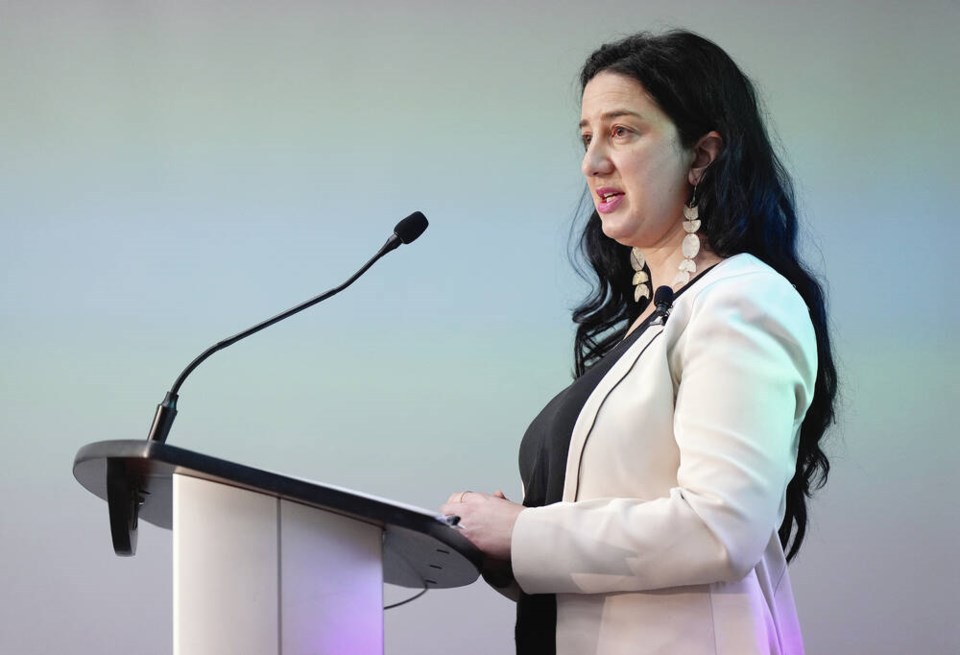A commentary by a JD candidate at the University of Victoria.
The writer of “A quick lesson in research into police in schools” (June 14) must think of himself as the bastion of objective truth, with “no dog in this hunt,” as he “boiled down” the research review cited by the B.C. human rights commissioner.
By claiming the Victoria teachers’ union (presumably the Greater Victoria Teachers’ Association) “bought the story of the human rights commissioner,” he is implying that the commissioner, Kasari Govender, had something to “sell.”
What Govender did, as she notes in her letter to the B.C. School Trustees Association, was carry out her mandate under the Human Rights Code, including making recommendations “the commissioner considers appropriate to prevent or eliminate discriminatory practices, policies and programs.”
Govender reviewed the research, found it inconclusive, and recommended that school districts end the use of school liaison officers “until the impact of these programs can be established empirically.”
The commentary presents the commissioner’s recommendation as something perhaps incongruent to or unfounded by the research it relies on.
But it was the dearth of research on the impact of school liaison programs on racialized youth that motivated the recommendation in the first place — the word “dearth” can even be found on page two of the report on school liaison officers (SLOs) by Dr. Kanika Samuels-Wortley.
If we do not have conclusive evidence of a benefit to students, and we do have concerns within the community, then that appears to me to be sufficient grounds for suspending a program until it can be determined to be either helpful or harmful.
At no point is Govender claiming that the research is irrefutable and conclusive, but quite the opposite: “There is an immediate need for research conducted in British Columbia that centres the experience of marginalized students and employs high-quality evaluation strategies,” as she states plainly in her letter.
Rather than boiling down the report to two disjointed sentences, it would be best to look at the four points highlighted in Govender’s letter, quoted here:
• Only a few peer-reviewed studies have examined Canadian school liaison programs, and these employ small, non-random samples or have other methodological limitations that render their conclusions suggestive rather than definitive.
• The literature on SLOs in Canada tends to focus on the perspectives or opinions of police personnel rather than students. An extensive review of the Canadian literature revealed no peer-reviewed studies that explore the impacts on marginalized students. Thus, as noted by the Ontario Association of Chiefs of Police, Canadian SLO literature maintains a “race-absent” approach that ultimately fails to explore the systemic challenges faced by Indigenous, Black and other racialized students.
• The much more robust body of American research finds that SLOs make marginalized students feel less safe at school, contributing to a sense of criminalization and surveillance. Furthermore, the impacts go far beyond perception of safety. Researchers have shown that SLOs discipline Black students and students with disabilities at disproportionately high rates in the United States. Unfortunately, British Columbia lacks the disaggregated data to understand whether this is true of our officers as well.
• Overall, the research across jurisdictions suggests that students generally feel safe at school regardless of whether an SLO is embedded in their school. Some of the most methodologically sound research concludes there is no evidence to support the notion that SLO programs make schools safer.
Instead of searching for a “gotcha” moment, the writer of the previous commentary could better serve the public by more accurately representing the findings of Govender.
Or, at the very least, properly citing his sources.
>>> To comment on this article, write a letter to the editor: [email protected]



